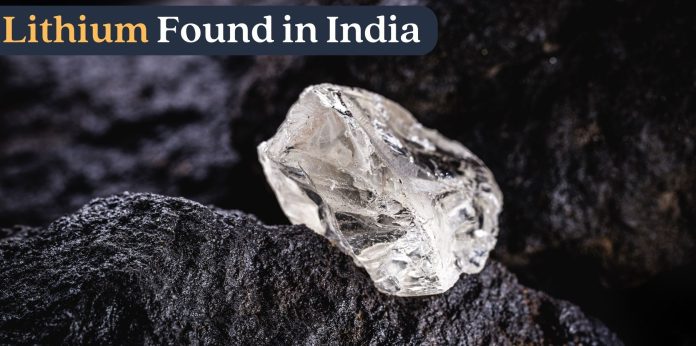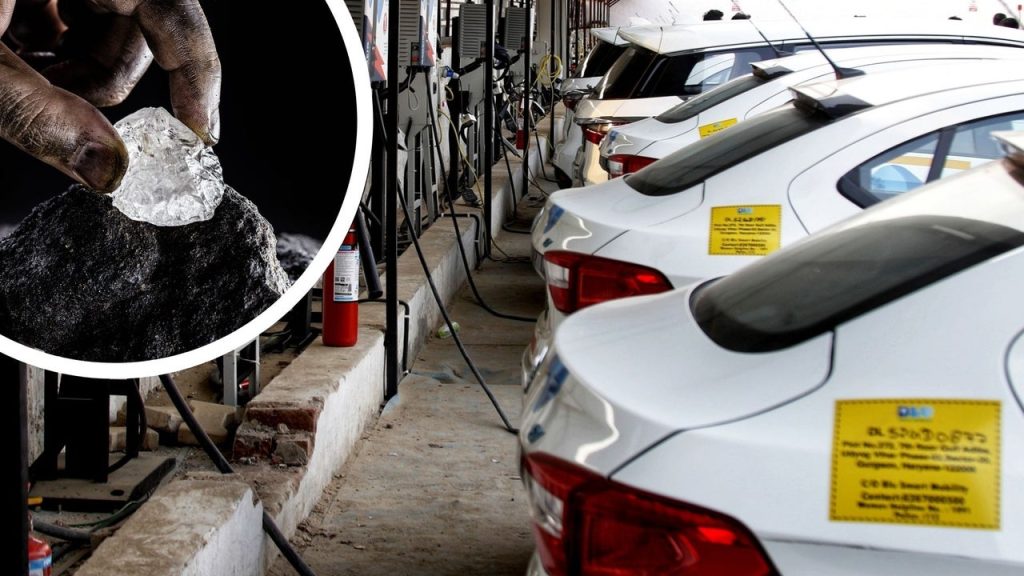By Himanshu Vaibhav, Technical Journalist, ELE Times
India has made a significant discovery of its second lithium reserve in Rajasthan, following the initial find in Jammu & Kashmir earlier in this year. The newly discovered reserve is located in the Degana municipality, situated within the Nagaur district of Rajasthan.
The lithium deposit in Jammu & Kashmir was estimated to be approximately 5.9 million tons. According to officials, the lithium reserves in Rajasthan are expected to meet around 80% of India’s lithium requirements.
The lithium reserves found in India discovery holds immense potential for energy transition, as it signifies a significant step towards reducing dependence on imports and bolstering domestic lithium production for several industries, including renewable energy storage and electric vehicles.
What impact will the discovery of Lithium Reserves in India have on various industries?
As per the Geological Survey of India (GSI) and mining officials, the quantity of lithium reserves discovered in Rajasthan surpasses the reserves found in Jammu and Kashmir in February 2023. These reserves are believed to be capable of fulfilling approximately 80% of India’s lithium requirement, indicating a significant shift towards green energy in the energy sector.
Consequently, lithium has become an invaluable asset for nations as it is extensively utilized in the production of solar panels, electric vehicles (EVs), rechargeable batteries for mobile phones, laptops, digital cameras, and wind turbines. These technologies are considered pivotal carbon-neutral alternatives for the future.
Due to its high power-to-weight ratio, lithium batteries have emerged as the sole alternative for electric vehicles (EVs). This characteristic allows them to deliver a substantial charge while maintaining a relatively low curb weight for the vehicle.
As per the assessments of mining officials, the lithium reserves found in India have the potential to achieve two significant outcomes for India. Firstly, they can assist in reducing the country’s reliance on imports from China for lithium. Secondly, these reserves can contribute to India’s goal of achieving self-sufficiency in green energy.
With the discovery of lithium reserves in India, India’s reliance on China for lithium imports will diminish. This reduction in dependency is expected to have a positive impact on the price of lithium batteries, offering potential cost savings and greater accessibility to this crucial component for various industries.
How can India disrupt China’s monopoly on lithium and establish its own foothold in the market?
India’s dependence on China and expensive international sources for lithium has been a longstanding concern. According to some reports, India imported lithium worth more than 6000 crores during the 2020-21 period, with over 3,500 crore sourced solely from China. However, the discovery of lithium reserves within India presents a significant opportunity to challenge China’s monopoly in the global market. This development has the potential to reshape India’s lithium supply chain dynamics, leading to reduce reliance on China and the establishment of a more diversified and self-sustaining lithium ecosystem within the country. Such a shift would not only address the current concerns regarding supply chain vulnerabilities but also foster greater independence and resilience in meeting the rising demand for lithium, a crucial component in the production of batteries for electric vehicles and renewable energy storage systems.
How the discovery of lithium reserves going to affect economically?
The discovery of lithium reserves in India and the growing adoption of electric vehicles have the potential to bring about transformative changes. This development could shield India from the escalating global prices of lithium, curbing the expenses incurred on oil imports, lessening reliance on China, generating employment opportunities, and fostering economic growth within the country.
The extraction and refinement of lithium necessitate the expertise of trained personnel and advanced technology, a capability that can be cultivated domestically, albeit not instantaneously. However, if executed effectively, this has the potential to generate fresh employment prospects for skilled workers, thereby invigorating the manufacturing sector.
Undoubtedly, the development of lithium reserves in India is highly likely to attract foreign investments and facilitate technology transfer, thereby propelling the country’s economic growth.
What specific infrastructure requirements are necessary in India for the production of lithium?
To achieve the government’s Production-Linked Incentive (PLI) target of establishing a 50 GWh capacity for lithium-ion cells and a battery manufacturing plant, India needs investments amounting to approximately 33,750 crores (equivalent to 4.5 billion USD). The successful scaling and stabilization of lithium-ion battery cell manufacturing within the country are crucial for India to realize its decarbonization objectives. This matter involves a concise breakdown of the lithium-ion battery cell manufacturing process, an estimation of the necessary materials and financial requirements, and the provision of a potential blueprint for an indigenization strategy. By domestically manufacturing batteries, a substantial portion of India’s anticipated surge in battery demand from the power and mobility sectors between 2021-22 and 2029-30 can be met. The study concludes that achieving such a large-scale expansion will necessitate the supply of components and electrode materials to the industry.
Identifying opportunities for substantial value capture, the study highlights the importance of developing indigenous capacity in both the upstream and midstream segments of the lithium-ion battery supply chains. To secure the future of this emerging industry, India must prioritize innovation, ecosystem building, and the acquisition of cathode mineral supplies. By focusing on these key areas, India can ensure a strong foothold in the nascent lithium-ion battery sector and create a self-reliant ecosystem that maximizes value and strengthens the country’s position in the global battery market.
What is the current status of mining and by when things would be roll out?
Following the discovery of India’s first-ever lithium reserve in Jammu and Kashmir, another significant deposit of this essential mineral has now been found in Degana, Rajasthan’s Nagaur region. Lithium, a non-ferrous metal widely used in the manufacturing of mobile devices, laptops, electric vehicles, and rechargeable batteries, has been primarily sourced from costly foreign supplies, leaving India heavily dependent. However, the Geological Survey of India (GSI) has identified substantial lithium deposits in the vicinity of Degana, presenting a significant opportunity for the state and the nation’s economy. The World Bank predicts a staggering 500 per cent surge in global demand for lithium metal by 2050, making Rajasthan’s vast reserves of lithium immensely advantageous.
During a GSI survey team’s exploration for tungsten, officials confirmed the presence of lithium deposits near Degana and hinted at the possibility of additional deposits in regions such as Barmer and Jaisalmer. The survey team is expediting the exploration work to ascertain the extent of the lithium reserves. The objective is to expedite the exploration process to reach the G2 stage, enabling mining auctions to be conducted promptly and efficiently.
The discovery of abundant lithium reserves in Rajasthan holds tremendous promise for India’s self-sufficiency in meeting the escalating demand for this crucial mineral. By reducing reliance on costly imports and fostering domestic lithium production, the country can bolster its economic growth and establish a stronger position in the global market. The ongoing exploration efforts signify a proactive approach by the GSI and the authorities involved, aiming to capitalize on this valuable resource and propel India towards a sustainable and prosperous future.











